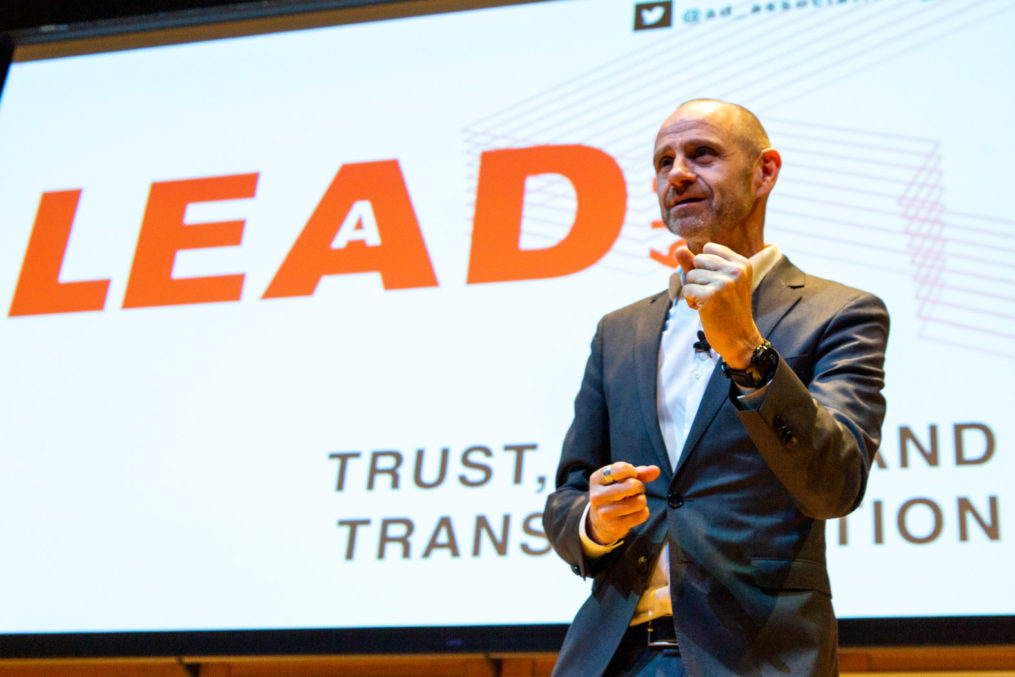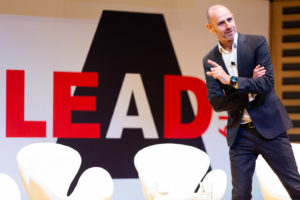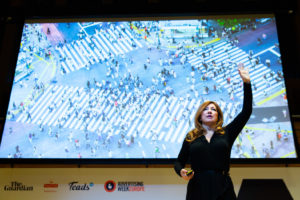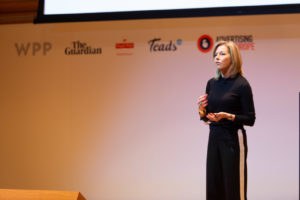Already a member? Sign in below

While LEAD is the definitive event at which advertising and politics meet, that interplay is far from the only feature of the event. This year’s conference also highlighted the need for more diversity in the industry, the challenge of restoring trust in advertising, and many much more off-the-wall topics.
Evan Davis, the well-known economist and broadcaster, took an enraptured audience through the nature of disinformation to determine how communication has changed in the past decade. He began by setting out his ‘General Theory of Bullshit’, which is far more than simple untruth:
“Most of what betrays trust is people bullshitting. Bullshit can mean lies, it can mean near-lies, it can mean obfuscation, saying stuff that is verbiage, it can mean economy with the truth. Bullshit can often mean disregard for the facts.”

He noted that while effective management of a message can deliver incredible returns – citing the New Labour era of relentlessly managed messages to the electorate as an example – that doesn’t mean that the public are gullible. In fact, he said that as a result of evolutionary pressure on humanity through the millennia, we are specifically designed to spot when we’re being lied to:
“If your assumption is that people are stupid, you need to reexamine what you’re doing. Human beings evolved in Africa because they become very effective pattern seekers. Our skill at pattern spotting is so developed we often spot it when it isn’t there. The public may not spot a pattern immediately, but they will spot it over time.”
Our special guest speaker Pippa Malmgren, co-founder of H Robotics and Former US Presidential Advisor, buoyed the spirits of the crowd by asserting that the UK’s future is rosy despite Brexit. She believes that our investment in A.I. technology means the country has a leg up in an era where data is so readily available and commodified:
“You’ve all heard of Cambridge Analytica. All they had was Facebook likes.
“Now we’re in a world where anyone who wants to advertise can buy all these silos of data… that goes way beyond what Cambridge Analytica had access to. This is a world where advertising decisions are made about you based on things you don’t even know about yourself. We’re going to have nanotechnology that is now broadcasting what’s happening in side the body at the level of DNA, cells… This is a world where we have this ubiquitous gathering of data, just imagine this holographic space full of quadrillions of data points.
“It’s [also] a place of radical transparency. The idea that the organisation can do one thing and say another isn’t going to work in this new environment.”

Malmgren shared some potential scare stories, suggesting that this hugely targeted data has the potential for misuse, but also made it clear that it offers the advertising industry some incredible advantages.
Our star LEAD moderator Mary Nightingale made a comment at the beginning of the day that underlined quite how vital the topics under discussion are for the whole UK.

Noting that a lot of the UK public doesn’t want to understand Brexit any more, she nevertheless noted that advertising helps to fund the news on which we depend:
“The viewers don’t want to understand [Brexit] any more. News gathering has changed enormously since I started in news.
“The way we gather news has changed enormously in that time. It then had to be developed, with tape and everything. Back in the Arab Spring… we started to use social media to get our content. It’s incredibly precious, but how do you verify that, so that question of trust came up again.
“You’re the lifeblood of ITV.”
Header image via Bronac McNeill.
Already a member? Sign in below
If your company is already a member, register your email address now to be able to access our exclusive member-only content.
If your company would like to become a member, please visit our Front Foot page for more details.